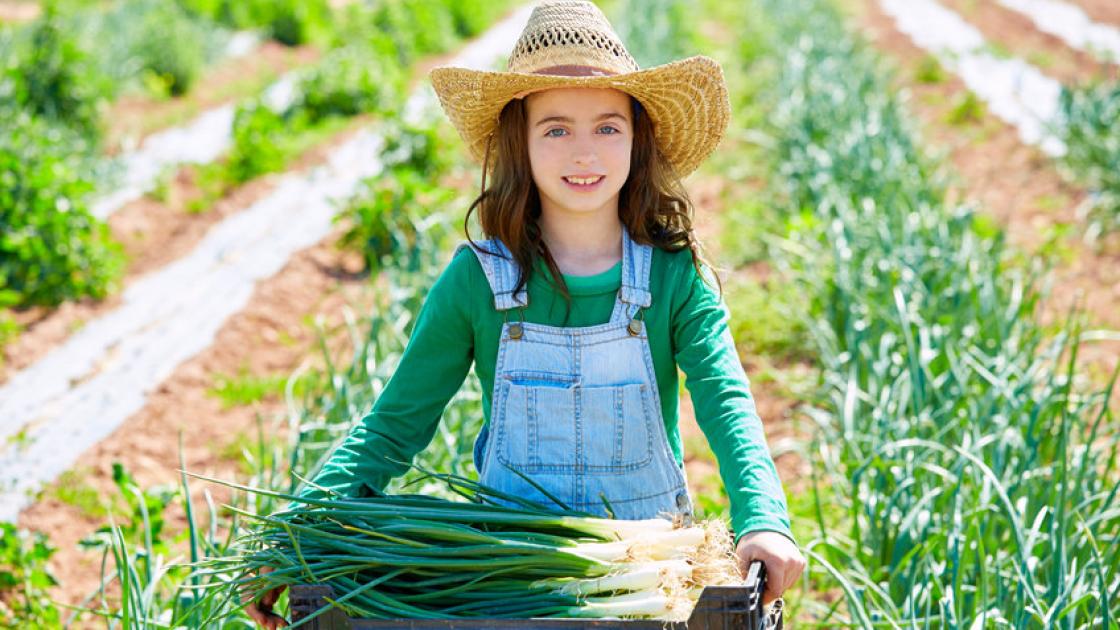
5 tips for keeping children safe on the farm
Did you know the majority of farms and farmland in the United States are operated by families? Small, family-run farms also generate just over a fifth of annual production, according to the U.S. Department of Agriculture (USDA).
Many American children are lucky to call farms home. But just like adults, these kids are at risk of injury and illnesses. At SIU Medicine, we want all local farming families, including their younger members, to stay well. Keep reading for important things to know about child health and safety on the farm.
Children on U.S. farms: important statistics to know
About 1.5 million children under the age of 20 live, work or have a regular presence on farms in the United States. This total includes children of farm families, farm workers, and migrant and seasonal workers. These children are exposed daily to many farm hazards including tractors, farm machinery, pesticides and livestock.
Sadly, an estimated 33 children are injured every day in agricultural-related incidents, according to the National Children's Center for Rural and Agricultural Health and Safety. Every three days, a child is killed in a farming or agricultural-related accident.
While the rate of farm injuries has declined overall in recent years, the rate of injuries to youngsters in farm households has remained relatively steady. In fact, the rates of injury among farm household youths between the ages of 10 to 19 increased between 2012 and 2014, and recent data shows the number of work-related fatalities among under-16 workers in agriculture is higher than all other non-agricultural industries combined.
Aside from the emotional and physical costs of youth farm-related injuries, the economic cost of youth farm-related injuries is considerable. Youth agricultural injuries and fatalities cost an estimated $2 billion annually.
Farming families will continue to benefit as more evidence is gathered about the impact of farming hazards on young children. But given what we already know, it's clear that taking purposeful steps to keep kids safer as they live and work on farms is an important public health measure.
5 tips to improve farm safety
Growing up and working on a farm gives children the opportunity to learn many important lessons: the importance of discipline, respect for animals and nature, problem-solving, teamwork and more. To make sure your children can gain these skills and knowledge without facing injury, illness or death, be sure to follow these safety tips:
- Remain vigilant about common safety hazards for kids on your farm, including machinery, pesticides and other chemicals, livestock, firearms, electric cords, confined spaces, heights, inclement weather, standing water and vehicles like cars, trucks, ATVs and dirt bikes. Store and handle these hazards appropriately to minimize the risk of harm.
- Establish clear and firm safety rules for your most important personnel: your children. Teach them these rules in ways that are appropriate for their age and development. If and when they fail to abide by them, follow through with clear consequences.
- Focus on tractor safety. Three out of four farm-related injuries among kids involve tractors. Never allow children to play on or near tractors, always store and maintain your tractors properly, keep keys out of reach and do not let young children operate tractors or other machinery.
- Ensure your children always have appropriate supervision, especially if they are old enough to help with chores. If you can't provide adequate supervision, arrange for childcare. Lean on other family members, daycare or professional nannies or babysitters. You can also collaborate with other farm families to create a babysitting cooperative.
- Take steps to protect your child's emotional and mental well-being as well as their physical well-being. Farming children often deal with unusual challenges such as less time with parents during planting and harvesting season and earlier exposure to ill, injured and dying animals. Encourage honest and trusting conversation with your children and be a role model by practicing good coping strategies yourself.
Do you have concerns about your child's health?
Farming can be stressful—you don't want the added stress of seeing your child injured or ill. If you are looking for help, contact the Farm Family Resource Initiative today at 618-713-0759 to learn more about the resources available to you.
Karen Leavitt Stallman
Ag Resource Specialist



